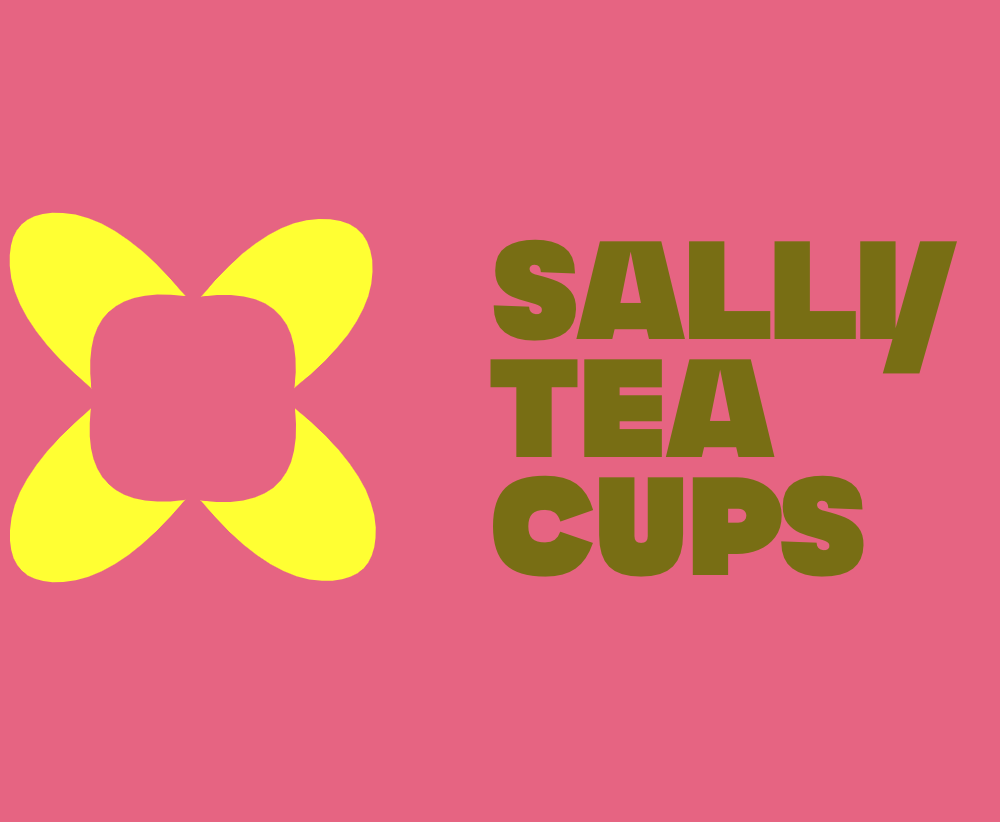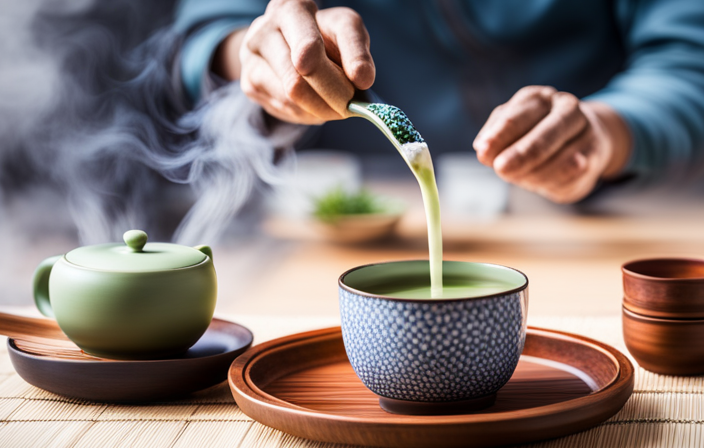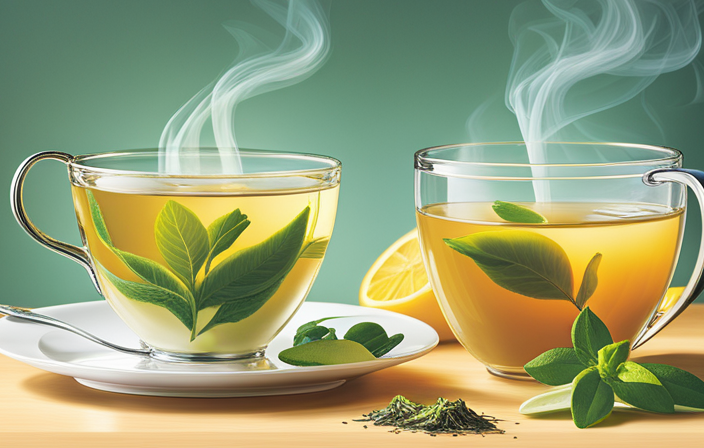Herbal Tea
How Much Antioxidants In Herbal Tea
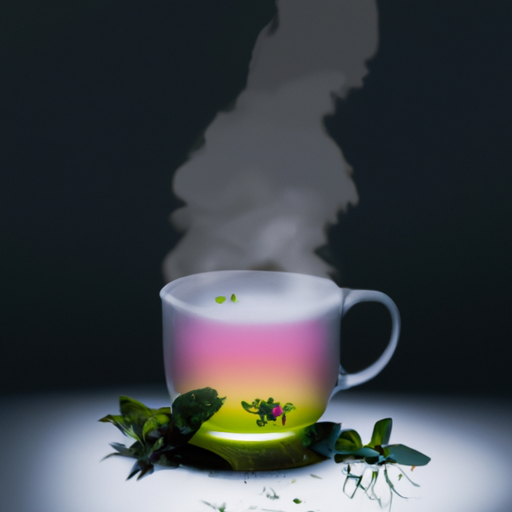
You may be wondering, ‘Is herbal tea essentially just flavored water? How can it actually provide any health advantages?’
Well, I used to have the same doubts, but let me tell you, herbal tea is so much more than just a flavorful beverage. It is packed with antioxidants, which are compounds that help protect our bodies from the damaging effects of free radicals.
But what exactly are antioxidants and why are they important? Antioxidants are substances that can prevent or slow down cell damage caused by free radicals, which are unstable molecules that can harm our cells and contribute to various health issues. By neutralizing these free radicals, antioxidants help reduce the risk of chronic diseases and promote overall health and well-being.
Now, you may be wondering how much antioxidants are actually present in herbal tea. It turns out, different types of herbal teas have varying levels of antioxidants. In this article, we will explore the antioxidant content of popular herbal teas such as green tea, rooibos tea, chamomile tea, and hibiscus tea.
So, grab a cup of your favorite herbal tea and let’s dive into the world of antioxidants and how they can benefit our health.
Key Takeaways
- Different types of herbal teas have varying levels of antioxidants.
- Green tea is a powerhouse of antioxidants, including polyphenols.
- Rooibos tea is rich in antioxidant flavonoids like aspalathin and quercetin.
- Chamomile tea, hibiscus tea, peppermint tea, and rooibos tea all contain antioxidants.
What are Antioxidants and Why are They Important?
Antioxidants are like the superheroes of the body, fighting off the villains known as free radicals and protecting our cells from damage. These powerful compounds are found in a variety of foods and beverages, including herbal tea.
Antioxidants are molecules that help neutralize the harmful effects of free radicals, which are unstable molecules that can cause oxidative stress and damage to our cells. By reducing oxidative stress, antioxidants play a crucial role in maintaining overall health and preventing chronic diseases such as heart disease and cancer.
Some common sources of antioxidants include fruits, vegetables, nuts, and seeds. Herbal teas, such as green tea and chamomile tea, also contain antioxidants that can contribute to their health benefits.
Now, let’s explore the different types of herbal tea and their antioxidant content.
Different Types of Herbal Tea and Their Antioxidant Content
Chamomile tea, known for its calming properties, is a popular herbal infusion that offers a range of health benefits, including boosting the body’s defense against harmful free radicals. But chamomile is just one of the many different flavors of herbal tea that provide antioxidant benefits.
Other herbal teas like hibiscus, peppermint, and rooibos also contain antioxidants that can help protect our cells from oxidative damage. Antioxidants are important because they neutralize free radicals, which are unstable molecules that can cause cell damage and contribute to chronic diseases like heart disease and cancer.
By incorporating a variety of herbal teas into your daily routine, you can increase your intake of antioxidants and support your overall health.
Now, let’s explore the powerhouse of antioxidants: green tea.
Green Tea: A Powerhouse of Antioxidants
Green tea is a remarkable source of powerful antioxidants that can significantly benefit your overall health. It’s packed with polyphenols, which are natural compounds that have potent antioxidant properties.
These antioxidants help to protect our cells from damage caused by harmful free radicals. Studies have shown that the antioxidants in green tea can reduce the risk of chronic diseases such as heart disease, cancer, and diabetes.
Green tea has also been found to improve brain function, boost metabolism, and aid in weight loss. The catechins found in green tea are particularly beneficial for promoting cardiovascular health.
With its numerous health benefits and antioxidant properties, green tea is a great addition to your daily routine.
Now let’s move on to the next section about rooibos tea: rich in antioxidant flavonoids.
Rooibos Tea: Rich in Antioxidant Flavonoids
Rooibos tea, a flavorful and refreshing alternative, offers a plethora of health benefits due to its abundance of antioxidant flavonoids. Antioxidants are compounds that help protect our cells from damage caused by free radicals, unstable molecules that can lead to chronic diseases like heart disease and cancer.
Rooibos tea contains a variety of flavonoids such as aspalathin and quercetin, which have been shown to have antioxidant properties. These antioxidants help neutralize free radicals and reduce oxidative stress in the body, promoting overall health and well-being. Research suggests that regularly consuming rooibos tea may have a range of health benefits, including improving heart health, boosting the immune system, and reducing inflammation.
So, not only is rooibos tea a delicious and refreshing beverage, but it also provides numerous antioxidant benefits and contributes to our overall health. Moving on to the next topic, chamomile tea is known for its soothing properties and is also rich in antioxidants.
Chamomile Tea: Soothing and Antioxidant-Rich
Indulge in the soothing properties of chamomile tea and let its rich blend of natural compounds work their magic on your mind and body. Chamomile tea is not only known for its calming effects, but it’s also packed with antioxidants that offer a range of health benefits.
Antioxidants help to protect the body against damage caused by free radicals, which are unstable molecules that can contribute to chronic diseases. The antioxidants found in chamomile tea, such as apigenin, have been shown to have anti-inflammatory and antimicrobial properties.
Additionally, chamomile tea is rich in flavonoids, a type of antioxidant that’s been linked to a reduced risk of heart disease and certain types of cancer. So, by enjoying a cup of chamomile tea, you can reap the benefits of its antioxidants and promote overall well-being.
Now, let’s move on to explore hibiscus tea: a vibrant source of antioxidants.
Hibiscus Tea: A Vibrant Source of Antioxidants
Immerse yourself in the vibrant world of hibiscus tea, where a burst of color and a symphony of flavors await to invigorate your senses. This stunning tea is known for its vibrant red color, which isn’t just visually appealing but also indicative of its high antioxidant content.
Antioxidants are compounds that help protect our cells from damage caused by free radicals, and hibiscus tea is packed with them. Studies have shown that consuming hibiscus tea may support heart health by lowering blood pressure and reducing LDL cholesterol levels. Additionally, this vibrant tea is rich in vitamin C, which can boost our immune system and promote healthy skin.
To maximize the antioxidant benefits of herbal tea, consider steeping it for a longer duration or adding a squeeze of lemon juice.
Transitioning into the next section, let’s explore some tips for maximizing the antioxidant benefits of herbal tea.
Tips for Maximizing the Antioxidant Benefits of Herbal Tea
To get the most out of your cup of herbal tea, try steeping it for a longer period of time or adding a splash of lemon juice to enhance its antioxidant properties. Antioxidants in herbal tea help protect our cells from damage caused by free radicals, which are unstable molecules that can lead to chronic diseases like cancer and heart disease. Maximizing herbal tea’s antioxidant benefits can be done by following these tips:
- Steep the tea for at least 5 minutes to allow the antioxidants to fully infuse into the water.
- Add a squeeze of lemon juice to increase the tea’s acidity, which helps release more antioxidants.
- Drink herbal tea in the morning or before a workout, as studies suggest that our bodies may absorb more antioxidants during these times.
- Store herbal tea properly in airtight containers away from light and moisture to preserve its antioxidant content.
By incorporating these practices, you can make the most of herbal tea’s antioxidant benefits and support your overall health.
Frequently Asked Questions
Are all antioxidants the same, or do different herbal teas contain different types of antioxidants?
Different herbal teas contain different types of antioxidants, which can provide unique health benefits. Unlike antioxidants in other foods, those in herbal tea have been shown to have anti-inflammatory and immune-boosting properties.
How do antioxidants in herbal tea help to improve overall health and well-being?
Antioxidants in herbal tea offer numerous benefits for overall health and well-being. They play a crucial role in the body by neutralizing harmful free radicals, reducing inflammation, and protecting against chronic diseases like heart disease and cancer.
Can herbal tea really help to prevent or reduce the risk of chronic diseases associated with oxidative stress?
Herbal tea, rich in antioxidants, may help prevent or reduce the risk of chronic diseases associated with oxidative stress. While it cannot replace medication, the brewing process can affect the antioxidant content.
What are some common misconceptions about antioxidants in herbal tea?
Common misconceptions about antioxidants in herbal tea include the belief that they are a cure-all for chronic diseases and that more is always better. While herbal tea does contain antioxidants, their benefits should be part of a balanced lifestyle.
Are there any potential side effects or risks associated with consuming high levels of antioxidants from herbal tea?
There may be potential health risks associated with consuming high levels of antioxidants from herbal tea. It is important to stick to the recommended daily intake to avoid any adverse effects.
Conclusion
In conclusion, herbal tea is a wonderful source of antioxidants, which play a crucial role in keeping our bodies healthy. Green tea, rooibos tea, chamomile tea, and hibiscus tea are all rich in antioxidants, each offering unique benefits.
By incorporating these teas into our daily routine, we can maximize their antioxidant benefits. So, why not indulge in a soothing cup of chamomile tea or a vibrant hibiscus tea and give our bodies a boost of antioxidants?
Cheers to a healthier and happier lifestyle!
Herbal Tea
What Herbal Tea Helps Headaches

As the day comes to a close and the sun dips below the horizon, a pounding ache starts to fill my head. It’s a pesky headache, barging in without an invitation and robbing me of my focus and quiet. If you want to banish the unwelcome headache and reclaim your peace of mind, keep reading to discover some surprising remedies.
But fear not, for I have discovered an ancient secret that nature herself has bestowed upon us: herbal teas. These delightful concoctions not only offer a soothing respite for our weary souls but also possess the power to alleviate those persistent headaches.
Allow me to be your guide on this holistic journey, as we explore the wonders of herbal teas that can provide relief and restore balance to our lives. Through the ages, chamomile, peppermint, ginger, lavender, lemon balm, feverfew, and willow bark teas have all been treasured for their therapeutic properties.
So, dear reader, let us delve into the depths of these herbal remedies and unlock the natural remedies that await us.
Key Takeaways
- Chamomile tea has soothing properties and can reduce inflammation and muscle tension, which are common causes of headaches.
- Peppermint tea is refreshing and invigorating, and it can relax tense muscles and alleviate pain and discomfort associated with headaches.
- Ginger tea is effective in reducing inflammation and promoting relaxation, making it a great option for relieving headaches.
- Lavender tea has calming properties that can relieve tension, stress, and headaches.
Chamomile Tea
Chamomile tea is a fantastic option for relieving headaches and promoting relaxation. The benefits of chamomile are well-known in the herbal world, and its soothing properties make it an excellent choice for those seeking natural relief from headaches.
Chamomile contains compounds that’ve been shown to reduce inflammation and muscle tension, both of which’re common causes of headaches. To make chamomile tea, simply steep a chamomile tea bag or a few teaspoons of dried chamomile flowers in hot water for about 5 minutes. The warm, fragrant infusion can be sipped slowly to help ease headache symptoms and induce a sense of calm.
Now, let’s move on to the next herbal tea that can help with headaches: peppermint tea.
Peppermint Tea
To relieve your headache, why not try sipping on some refreshing and invigorating peppermint-infused brew? Peppermint tea has been used for centuries as a natural remedy for various ailments, including headaches and migraines. This aromatic herbal tea is known for its soothing properties and ability to relax tense muscles, which can help alleviate the pain and discomfort associated with headaches.
Peppermint tea benefits go beyond just headache relief. It is also known to aid digestion, reduce stress, and improve mental clarity. The menthol in peppermint has a cooling effect, which can provide a refreshing sensation and promote a sense of calmness.
| Emotion | Effect |
|---|---|
| Relaxation | Soothing and calming |
| Refreshment | Cooling and invigorating |
| Comfort | Pain relief and relaxation |
Now, let’s transition to the next section where we explore the benefits of ginger tea for headaches.
Ginger Tea
Ginger, with its fiery and invigorating flavor, has been likened to a warm embrace on a chilly day, bringing relief and comfort to those suffering from head pain. This powerful root has been used for centuries to alleviate migraine symptoms and promote overall relaxation and stress relief.
One reason why ginger tea is effective in relieving headaches is its ability to reduce inflammation. Ginger contains compounds called gingerols, which have been shown to inhibit the production of inflammatory substances in the body. By reducing inflammation, ginger tea can help ease the pain and discomfort associated with headaches.
Another benefit of ginger tea is its ability to promote relaxation. It has a calming effect on the body and can help relieve tension and stress, which are common triggers for headaches.
Transitioning into the subsequent section about lavender tea, this fragrant herbal tea is also known for its soothing properties and can be a great option for those seeking natural headache relief.
Lavender Tea
Lavender tea, with its soothing aroma and calming properties, can be a delightful and effective remedy for relieving tension and promoting relaxation. Lavender has been used for centuries for its medicinal benefits, and drinking lavender tea is a convenient way to enjoy its therapeutic effects. The benefits of lavender tea include reducing anxiety and stress, improving sleep quality, and alleviating headaches.
To make lavender tea, simply steep a teaspoon of dried lavender flowers in a cup of hot water for about 10 minutes. You can also add honey or lemon for extra flavor. Sipping on a warm cup of lavender tea can help ease headaches and create a sense of tranquility.
Transitioning into the next section, lemon balm tea is another herbal remedy that can provide relief from headaches.
Lemon Balm Tea
Indulge in the refreshing and zesty lemon balm tea, and watch as your headaches melt away like a popsicle on a scorching summer day. Lemon balm tea, derived from the Melissa officinalis plant, has been used for centuries due to its many beneficial properties.
Studies have shown that lemon balm tea has calming effects on the nervous system, which can help alleviate tension headaches. It contains natural compounds like rosmarinic acid, which has anti-inflammatory and antioxidant properties, further aiding in headache relief.
To make a delicious cup of lemon balm tea, simply steep a handful of fresh leaves in hot water for about 5 minutes. You can also add a touch of honey or lemon for added flavor.
Transitioning into the next section, let’s discuss the benefits of feverfew tea.
Feverfew Tea
Sip on a steaming cup of feverfew tea and feel the tension in your head unravel like a tightly wound coil. Feverfew tea has long been recognized as one of the most effective herbal remedies for migraines. Its active ingredient, parthenolide, is known to reduce the frequency and severity of headaches. Research has shown that feverfew tea can help to inhibit the release of certain chemicals in the brain that cause migraines, providing relief and preventing future episodes.
To give you a better idea of the benefits of feverfew tea, here is a comparison table:
| Feverfew Tea | Medication |
|---|---|
| Natural | Synthetic |
| Minimal side effects | Potential side effects |
| Long-term benefits | Short-term relief |
| Affordable | Expensive |
| Holistic approach | Targeted approach |
Now, let’s move on to another powerful herbal remedy for headaches – willow bark tea.
Willow Bark Tea
Willow Bark Tea is a natural pain reliever that I’ve found to be incredibly effective in alleviating headaches caused by inflammation. As someone who experiences frequent headaches, I’ve been searching for natural remedies that provide relief without the side effects of over-the-counter medication.
Willow Bark Tea, derived from the bark of the willow tree, contains a compound called salicin that’s been shown to have anti-inflammatory properties. This makes it a great option for those seeking a holistic approach to pain management.
Natural pain reliever
Ease your headache with the comforting warmth and soothing properties of a cup of herbal tea. Herbal remedies have long been used in alternative medicine to provide natural pain relief. When it comes to headaches, certain herbal teas can work wonders in alleviating discomfort.
Here are three herbal teas that have been shown to help ease headaches:
-
Chamomile Tea: Known for its calming properties, chamomile tea can help relax tense muscles and relieve headache pain.
-
Peppermint Tea: The menthol in peppermint tea has a cooling effect that can provide relief from headaches, especially those caused by tension or sinus congestion.
-
Ginger Tea: Ginger has anti-inflammatory properties that can help alleviate headaches caused by inflammation.
These herbal teas offer a holistic approach to headache relief, targeting the underlying causes of pain.
Transitioning into the next section, let’s explore how herbal tea helps to alleviate headaches caused by inflammation.
Helps to alleviate headaches caused by inflammation
As I mentioned earlier, natural pain relievers can be a great alternative to over-the-counter medications. When it comes to headaches caused by inflammation, herbal tea can be particularly helpful in alleviating the pain. There are several herbal teas that have anti-inflammatory properties and can provide relief from headaches.
One of the most effective herbal teas for headache relief is ginger tea. Ginger contains compounds called gingerols, which have been shown to reduce inflammation in the body. Another great option is chamomile tea, which has been used for centuries to treat headaches and promote relaxation.
To help you understand the benefits of herbal tea for headaches, I have created a table summarizing some key information:
| Herbal Tea | Benefits |
|---|---|
| Ginger tea | Reduces inflammation and eases headache pain |
| Chamomile tea | Promotes relaxation and relieves tension headaches |
| Peppermint tea | Soothes headaches and provides a cooling sensation |
| Lavender tea | Calms the mind and relieves stress-related headaches |
When it comes to finding natural remedies for headache relief, incorporating herbal teas into your routine can be a soothing and effective solution.
Frequently Asked Questions
How long does it take for herbal tea to relieve a headache?
The efficacy of herbal tea in relieving headaches varies depending on several factors. These include the type of tea used, individual tolerance, and the severity of the headache. It may take some time for the tea to take effect and provide relief.
Are there any side effects or potential interactions with other medications when consuming herbal tea for headaches?
When consuming herbal tea for headaches, it is important to be aware of potential allergic reactions and interactions with other medications. It is also worth noting that herbal teas may be less effective than over the counter pain relievers.
Can pregnant women safely consume these herbal teas for headache relief?
Pregnant women should consult with their healthcare provider before consuming herbal teas for headache relief to ensure safety. Limited evidence exists on the efficacy of herbal teas specifically for pregnant women.
Are there any specific dosages or brewing instructions for each type of herbal tea mentioned?
Dosage recommendations and brewing techniques vary for each herbal tea. It’s important to follow the instructions on the packaging or consult a healthcare professional for specific guidance.
Can children drink herbal tea to alleviate headaches?
Herbal tea can be a soothing remedy for headaches in both children and adults. It offers a natural alternative to over-the-counter medications. Its holistic properties have been proven effective in alleviating headaches.
Conclusion
In conclusion, when it comes to relieving headaches, herbal teas can be a soothing and natural remedy. Chamomile tea, with its calming properties, can help ease tension headaches. Peppermint tea, known for its cooling effect, may alleviate migraines. Ginger tea, with its anti-inflammatory properties, could provide relief for headaches caused by inflammation. Lavender tea, lemon balm tea, feverfew tea, and willow bark tea have also been traditionally used for their headache-relieving properties.
So, embrace the power of nature and find solace in a cup of herbal tea to ease your head pain. Remember, sometimes the simplest remedies hold the strongest healing power.
Herbal Tea
What Is The Old Path Herbal Tea Made Of
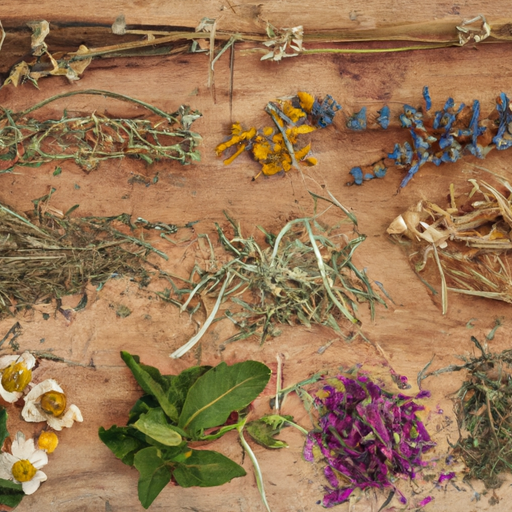
Ever thought about what sets Old Path herbal tea apart?
Well, let me take you on a journey to discover the exquisite blend of traditional herbs and botanicals that make up this delightful beverage.
Old Path herbal tea is a harmonious combination of nature’s finest ingredients, carefully selected and expertly crafted to bring you a truly unique and satisfying tea experience.
This ancient recipe has been passed down through generations, ensuring that each cup of Old Path herbal tea is infused with the wisdom of time-honored traditions.
With its rich history and natural goodness, this tea offers a plethora of health benefits that will leave you feeling rejuvenated and revitalized.
Whether you’re looking for a soothing cup before bed or a refreshing pick-me-up in the morning, Old Path herbal tea is the perfect companion.
Stay tuned as we explore the origins, benefits, brewing techniques, and where to find this exceptional tea.
Get ready to embark on a journey of flavor and wellness with Old Path herbal tea.
Key Takeaways
- The Old Path herbal tea is made from a blend of traditional herbs and botanicals.
- Key ingredients in the blend include chamomile, peppermint, hibiscus, and rosehips.
- The herbs are carefully selected, harvested at their peak, and expertly blended.
- The process of making the tea preserves the natural oils and essences of the herbs.
The Origins of Old Path Herbal Tea
Have you ever wondered about the origins of Old Path Herbal Tea? Let me take you on a journey through time to understand the cultural significance and historical uses of this beloved beverage.
Old Path Herbal Tea has a rich history deeply rooted in ancient traditions. For centuries, it’s been cherished for its numerous health benefits and calming properties. The tea is carefully crafted using a blend of traditional herbs and botanicals, each chosen for their unique healing properties.
These herbs have been passed down through generations, with their knowledge and usage evolving over time. From soothing digestion to promoting relaxation, Old Path Herbal Tea has been a trusted companion in natural wellness.
As we delve into the next section about a blend of traditional herbs and botanicals, you’ll discover the secrets behind the exceptional taste and therapeutic qualities of this remarkable tea.
A Blend of Traditional Herbs and Botanicals
Indulge in a delightful blend of traditional herbs and botanicals for a truly refreshing experience. Old Path Herbal Tea is carefully crafted using a combination of time-honored ingredients that have been used for centuries in traditional remedies.
This unique blend brings together the healing properties of three key herbs: chamomile, known for its calming effects on the body and mind; peppermint, which aids digestion and provides a cooling sensation; and rosehip, a rich source of vitamin C and antioxidants. These herbs work harmoniously to create a tea that not only tastes delicious but also promotes overall well-being.
As we delve into the health benefits of Old Path Herbal Tea, you’ll discover how these natural ingredients can enhance your daily routine and support your health journey.
The Health Benefits of Old Path Herbal Tea
Discover how sipping on this carefully crafted blend of traditional herbs and botanicals can boost your overall well-being and support your health journey.
Herbal tea has a rich history and cultural significance, dating back centuries as a natural remedy for various ailments. There are different types of herbal teas, each with its own unique health benefits.
For example, chamomile tea is known for its calming properties, while peppermint tea aids digestion. Ginger tea is great for relieving nausea, and echinacea tea can boost the immune system.
Old Path Herbal Tea combines the best of these traditional herbs to create a flavorful and health-boosting beverage. With its blend of herbs and botanicals, this tea provides a natural way to support your health and wellness goals.
Transitioning into the next section, let’s explore the natural goodness of old path herbal tea.
The Natural Goodness of Old Path Herbal Tea
Immerse yourself in the invigorating blend of traditional herbs and botanicals found in Old Path Herbal Tea, and experience the natural goodness that’ll rejuvenate your body and soul.
Herbal tea has a rich history and cultural significance, dating back centuries. It’s been enjoyed for its soothing properties and health benefits in various cultures around the world.
Old Path Herbal Tea offers a wide variety of herbal teas, each with its own unique benefits. From calming chamomile to revitalizing peppermint, there’s a tea for every mood and need.
These herbs are carefully selected and blended to create a harmonious and delicious beverage that not only tastes great but also supports overall well-being.
Discover the ancient wisdom of herbal teas and how they can enhance your health and wellness.
Now, let’s dive into the art of brewing the perfect cup of Old Path Herbal Tea.
How to Brew the Perfect Cup of Old Path Herbal Tea
Pour hot water over a perfectly measured tea bag, allowing it to steep and release its aromatic essence, creating a symphony of flavors that’ll transport you to a serene oasis of relaxation and rejuvenation.
To brew the perfect cup of Old Path Herbal Tea, start by selecting your desired flavor variation. Each blend offers a unique taste profile, from the zesty notes of the Citrus Burst to the soothing hints of the Chamomile Dream.
Next, bring fresh water to a boil and let it cool slightly to the recommended temperature for your chosen blend. Gently place the tea bag into your favorite cup and pour the hot water over it. Allow the tea to steep for the recommended time, usually around 5 minutes, to fully extract the flavors.
Finally, remove the tea bag and savor the delightful brew.
Now, let’s explore where to find Old Path Herbal Tea…
Where to Find Old Path Herbal Tea
When searching for the perfect cup of Old Path Herbal Tea, you can easily find it at various tea shops and specialty stores.
One of the best places to start your search is at local tea shops, where they often carry a variety of herbal teas, including Old Path.
Specialty stores that focus on natural and organic products are also a great option. These stores typically have a wide selection of herbal teas, and Old Path is likely to be among them.
When comparing prices, it’s important to note that Old Path Herbal Tea is known for its high-quality ingredients, so it may be priced slightly higher than other herbal teas. However, the exceptional taste and health benefits make it worth the investment.
Moving on to frequently asked questions about Old Path Herbal Tea…
Frequently Asked Questions about Old Path Herbal Tea
Looking for answers about Old Path Herbal Tea? You might be wondering about its health benefits and how to properly brew it. Well, let me share with you the key details about Old Path Herbal Tea.
This delightful tea is made from a blend of all-natural herbs and botanicals carefully selected for their unique properties. The ingredients include chamomile, peppermint, hibiscus, and rosehips, which give the tea its soothing and refreshing flavors.
To make Old Path Herbal Tea, the herbs are harvested at their peak and then expertly blended to create a harmonious and flavorful brew. The process involves drying and crushing the herbs, ensuring that their natural oils and essences are preserved. This meticulous process results in a high-quality tea that’s not only delicious but also offers numerous health benefits.
So, brew yourself a cup and enjoy the goodness of Old Path Herbal Tea.
Frequently Asked Questions
Can Old Path Herbal Tea cure specific medical conditions?
Old Path herbal tea has potential benefits in addressing specific medical conditions. It is essential to consult with a healthcare professional for recommended dosage and to determine if it is suitable for your individual needs.
Are there any potential side effects or interactions with medications when consuming Old Path Herbal Tea?
When consuming Old Path herbal tea, it’s important to be aware of potential side effects and interactions with medications. Some herbs may interact with certain drugs, causing adverse effects. It’s always advised to consult with a healthcare professional.
Is Old Path Herbal Tea safe for pregnant or breastfeeding women?
No worries, Old Path herbal tea is safe for pregnant and breastfeeding women. It doesn’t affect fertility and actually offers benefits for postpartum recovery. So go ahead and enjoy a cup!
Does Old Path Herbal Tea contain any artificial flavors or additives?
No, Old Path herbal tea does not contain any artificial flavors or additives. It is made from a blend of natural herbs and botanicals, providing potential health benefits such as relaxation and digestion support.
Is Old Path Herbal Tea suitable for individuals with specific dietary restrictions or allergies?
Old Path herbal tea is suitable for individuals with specific dietary restrictions or allergies. The ingredients used in this tea are carefully chosen to avoid common allergens and cater to various dietary needs.
Conclusion
In conclusion, Old Path Herbal Tea is a remarkable blend of traditional herbs and botanicals that offers numerous health benefits. Its natural goodness and soothing properties make it the perfect choice for those seeking a comforting and rejuvenating beverage.
Whether you’re looking to relax, boost your immune system, or simply enjoy a delicious cup of tea, Old Path Herbal Tea is a wise choice. So, why not embark on a journey of flavor and wellness with this herbal concoction that’ll take you down the path of vitality and serenity.
Herbal Tea
Which Herbal Tea Is Caffeinated

When it comes to herbal tea, numerous individuals seek it out for its soothing and calming effects. However, it may come as a surprise to learn that not all herbal teas are free of caffeine. In reality, there are multiple herbal teas that do contain caffeine, offering a mild energy lift without the jitteriness or crash often associated with coffee.
In this article, I will guide you through the world of caffeinated herbal teas, exploring the different varieties and their unique benefits.
First up is chamomile tea, known for its calming effects and delicate floral flavor. While chamomile is typically caffeine-free, there are some blends that may contain small amounts of caffeine.
Next, we have peppermint tea, which is renowned for its refreshing and invigorating qualities. Although peppermint tea is usually caffeine-free, it’s important to check the label as some blends may include caffeine.
Moving on, we have rooibos tea, a South African herbal tea that boasts a rich and earthy taste. Rooibos is naturally caffeine-free, making it a great choice for those looking to unwind without the stimulation.
Another option is yerba mate tea, a traditional South American herbal tea that provides a gentle energy boost, thanks to its caffeine content.
Lastly, we have the well-known trio of green tea, black tea, and white tea. While these teas are not technically herbal, they are derived from the Camellia sinensis plant and contain varying amounts of caffeine. Green tea has a moderate caffeine content, black tea has a higher caffeine content, and white tea has the least amount of caffeine among the three.
So, whether you’re looking for a tea to relax or one to invigorate, there is a caffeinated herbal tea out there that suits your needs. Join me as we delve into the world of herbal teas and discover the perfect cup to start your day or wind down your evening.
Key Takeaways
- Chamomile tea is usually caffeine-free, but some blends may have small amounts of caffeine.
- Peppermint tea is usually caffeine-free, but some blends may include caffeine.
- Rooibos tea is naturally caffeine-free.
- Yerba mate tea has caffeine and provides a gentle energy boost.
Chamomile Tea
If you’re looking for a soothing and caffeine-free herbal tea option, chamomile tea is the perfect choice! Known for its calming properties, chamomile tea has been used for centuries to promote relaxation and improve sleep quality.
One of the main benefits of chamomile tea is its ability to reduce anxiety and help with insomnia. It contains compounds that bind to certain receptors in the brain, promoting relaxation and sleepiness.
Additionally, chamomile tea is rich in antioxidants, which can help reduce inflammation and boost your immune system. So, if you’re looking to unwind after a long day or improve your sleep quality, chamomile tea is a great option.
Now let’s move on to another popular herbal tea: peppermint tea.
Peppermint Tea
Peppermint tea doesn’t contain caffeine, making it a great choice for those looking for a caffeine-free herbal option. It’s refreshing and soothing, and it also offers a variety of benefits. Here are four reasons why you should consider adding peppermint tea to your daily routine:
-
Digestive Aid: Peppermint tea can help relieve digestive issues like bloating, indigestion, and stomach cramps.
-
Stress Relief: The menthol in peppermint tea has a calming effect on the body, making it an excellent choice for relaxation and stress relief.
-
Breath Freshener: Peppermint tea’s natural aroma can freshen your breath and help combat bad breath.
-
Homemade Delight: Making homemade peppermint tea is simple. Just steep fresh or dried peppermint leaves in hot water for 5-10 minutes and enjoy!
Now, let’s move on to the next section where we’ll explore the world of rooibos tea.
Rooibos Tea
Imagine stepping into a vibrant oasis where the warm embrace of a soothing, caffeine-free elixir awaits you – rooibos tea, a delightful escape from the chaos of the world.
Rooibos tea, also known as red bush tea, is a herbal tea that hails from South Africa. It offers a wide range of health benefits, including its high antioxidant content, which helps boost the immune system and fight inflammation. Rooibos tea is also known for its calming properties, making it a popular choice for relaxation and stress relief.
The taste of rooibos tea is earthy and slightly sweet, with hints of vanilla and honey.
As we transition to the next section about yerba mate tea, let’s explore another energizing herbal tea option.
Yerba Mate Tea
Yerba Mate tea, a revitalizing South American beverage, is a popular choice among those seeking a natural energy boost. This herbal tea contains a moderate amount of caffeine, making it an excellent alternative to coffee for those looking to enhance mental clarity and boost energy levels. Here are three reasons why you should give Yerba Mate tea a try:
-
Rich in antioxidants: Yerba Mate tea is packed with powerful antioxidants that help protect the body against oxidative stress and promote overall well-being.
-
Promotes focus and mental alertness: The caffeine content in Yerba Mate tea stimulates the central nervous system, improving focus, alertness, and cognitive function.
-
Sustained energy without jitters: Unlike coffee, Yerba Mate tea provides a smooth and sustained energy boost without the typical crash or jitters.
As we transition into the next section about green tea, it’s important to note that Yerba Mate tea offers a unique set of benefits that can complement the properties of green tea.
Green Tea
If you’re looking for a natural way to boost your energy and improve your cognitive function, green tea is the perfect choice. Green tea is a type of herbal tea that’s known for its numerous health benefits. It’s rich in antioxidants, which help to protect the body against damage from harmful free radicals.
Green tea has also been shown to aid in weight loss by boosting metabolism and increasing fat oxidation. Additionally, it contains a small amount of caffeine, which can provide a mild energy boost without the jitters or crash associated with coffee.
Green tea is a great option for those looking to incorporate a healthy beverage into their daily routine.
Speaking of caffeine, let’s now explore another type of herbal tea – black tea.
Black Tea
Black tea is a popular beverage that contains a moderate amount of caffeine, making it a great alternative for those who want a little kick without the jitters.
In addition to its caffeine content, black tea is also known for its ability to enhance heart health. It has been found to improve blood flow and reduce the risk of heart disease.
Furthermore, black tea has been shown to aid in digestion, promoting a healthy gut and relieving digestive issues.
So, if you’re looking for a flavorful tea that provides a moderate caffeine boost while also benefiting your heart and digestion, black tea is a great choice.
Moderate Amount of Caffeine
Chamomile tea has a moderate amount of caffeine, providing a gentle boost of energy that is equivalent to sipping on a small cup of espresso. Consuming moderate amounts of caffeine can have several benefits. It can improve mental alertness, increase focus, and enhance physical performance. Caffeine also has the potential to boost metabolism and aid in weight loss. However, it’s important to be cautious with caffeine intake, as consuming too much can lead to side effects such as jitteriness, increased heart rate, and difficulty sleeping. It’s always recommended to consume caffeine in moderation and be aware of its effects on your body.
Moving on to the next section, chamomile tea not only has a moderate amount of caffeine but also enhances heart health and improves digestion.
Enhances Heart Health and Improves Digestion
Take a moment to imagine how your heart would thank you if you incorporated chamomile tea into your daily routine, as it’s been shown to enhance heart health and improve digestion.
Chamomile tea isn’t just known for its calming effects; it also offers a variety of health benefits. It’s a great option for weight loss as it aids in digestion and helps reduce bloating.
In addition, chamomile tea is a natural stress reliever, promoting relaxation and reducing anxiety. It contains antioxidants that protect the heart, reducing the risk of cardiovascular diseases.
Furthermore, chamomile tea can soothe an upset stomach and relieve indigestion.
With its numerous health benefits, chamomile tea is a fantastic addition to any wellness routine.
Speaking of heart health, let’s explore the wonders of white tea.
White Tea
White tea is a light and refreshing option for those looking for a caffeinated herbal tea. It offers numerous benefits for heart health and digestion. When consumed regularly, white tea can help reduce the risk of heart disease and lower blood pressure.
Additionally, it contains antioxidants that aid in digestion and promote a healthy gut. To brew the perfect cup of white tea, start by heating water to around 175°F. Next, steep the tea leaves for about 2-3 minutes to allow the delicate flavors to fully develop. Finally, strain the tea and enjoy the subtle, floral notes that white tea is known for.
Remember, white tea contains caffeine, so it’s best to enjoy it in moderation.
Frequently Asked Questions
What are the health benefits of chamomile tea?
Chamomile tea has numerous health benefits, such as promoting sleep, reducing anxiety, and aiding digestion. Although some may experience allergic reactions or drowsiness, chamomile tea is generally safe and offers a soothing and natural remedy.
Is peppermint tea safe to consume during pregnancy?
Peppermint tea is generally safe to consume during pregnancy. It can help alleviate morning sickness and aid digestion. However, excessive consumption may lead to heartburn or worsen acid reflux. As always, consult with your healthcare provider for personalized advice.
Does rooibos tea contain any antioxidants?
Rooibos tea, with its rich red color and distinct flavor, is a herbal tea that does contain antioxidants. These antioxidants contribute to its health benefits, making it a popular choice among tea enthusiasts.
How does yerba mate tea compare to coffee in terms of caffeine content?
Yerba mate tea contains more caffeine than green tea. It can provide a similar energy boost to coffee, but with fewer jitters and crashes. Caffeine stimulates the central nervous system, increasing alertness and reducing fatigue.
Can green tea help with weight loss?
Green tea can potentially help with weight loss as it contains compounds that can boost metabolism and promote fat burning. It’s important to note that individual results may vary and it should be incorporated into a balanced diet and exercise routine.
Conclusion
After exploring the various herbal teas, it’s clear that the winner in the caffeine department is Yerba Mate Tea. This energizing beverage is packed with a mighty punch of caffeine, making it the go-to choice for those needing a boost.
While other herbal teas have their unique benefits and flavors, Yerba Mate reigns supreme when it comes to providing that much-needed jolt. So, if you’re looking for a natural way to kickstart your day, reach for a cup of Yerba Mate Tea and let the energy flow!
-

 Herbal Tea38 minutes ago
Herbal Tea38 minutes agoWhat Is The Old Path Herbal Tea Made Of
-
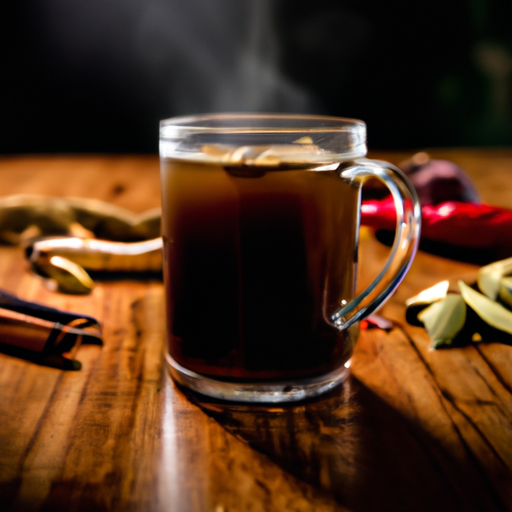
 Tea Brewing and Preparation1 week ago
Tea Brewing and Preparation1 week agoThe Ultimate Guide To Authentic Yogi Tea: A Spiced Immune-Boosting Ayurvedic Delight
-
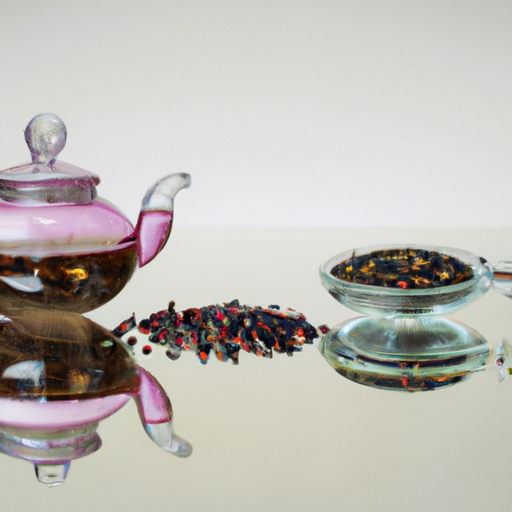
 Herbal Tea4 days ago
Herbal Tea4 days agoHow To Add Peppercorns To Herbal Tea Blends
-
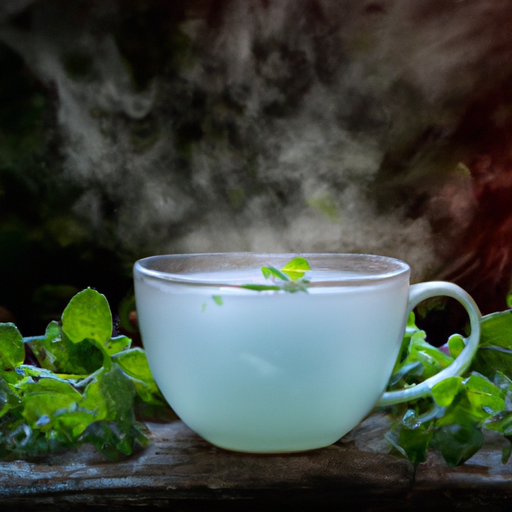
 Herbal Tea5 days ago
Herbal Tea5 days agoHow Does Peppermint Herbal Tea Help Clear Up A Cold
-
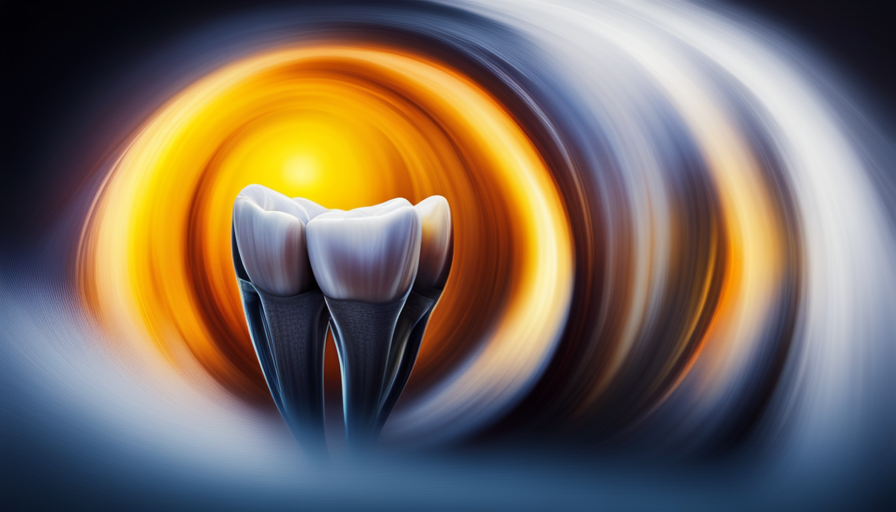
 Turmeric Tea1 week ago
Turmeric Tea1 week agoIs Turmeric Good For Tooth Inflammation
-
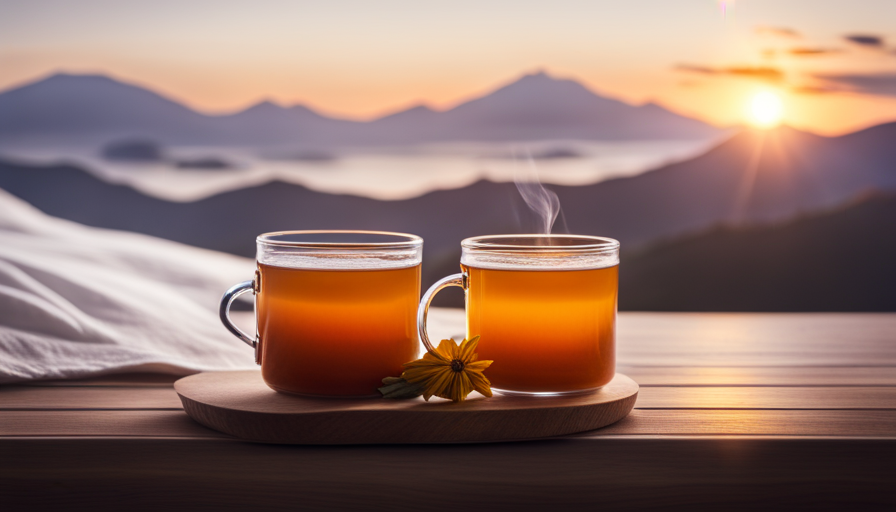
 Turmeric Tea1 week ago
Turmeric Tea1 week agoIs Turmeric Tea Good Before Bed
-

 Herbal Tea1 week ago
Herbal Tea1 week agoWhat Herbal Tea Is Good For Diverticulitis
-
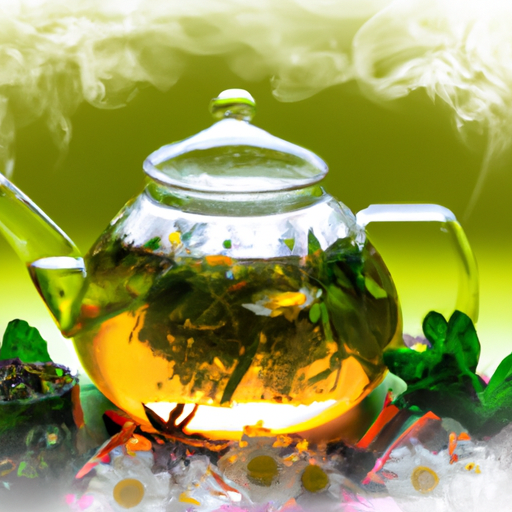
 Herbal Tea1 week ago
Herbal Tea1 week agoHow Much Potassium Is In Herbal Tea
